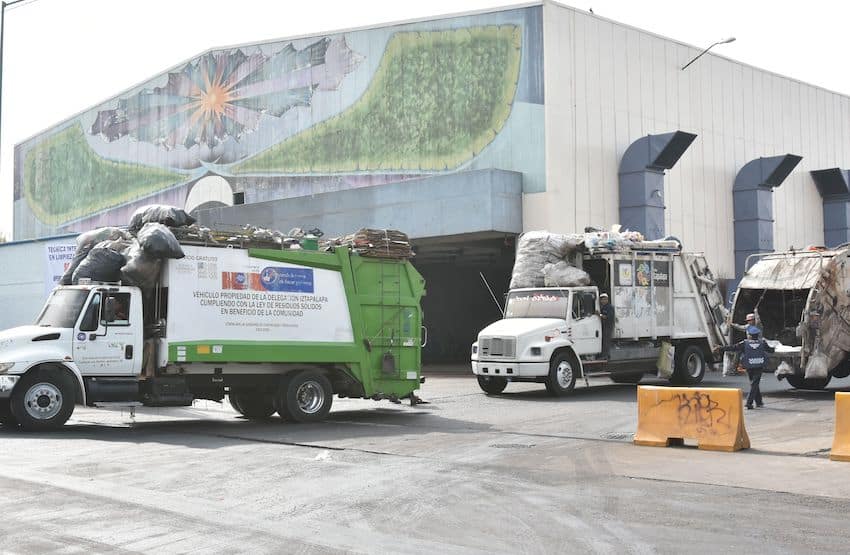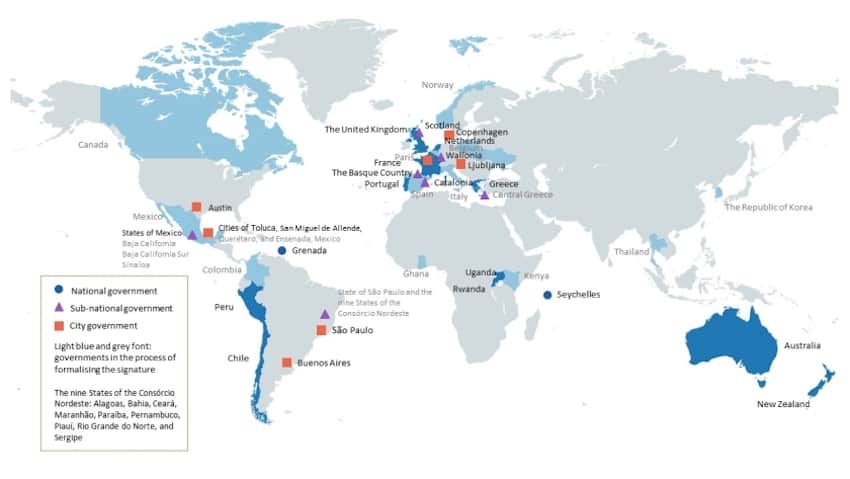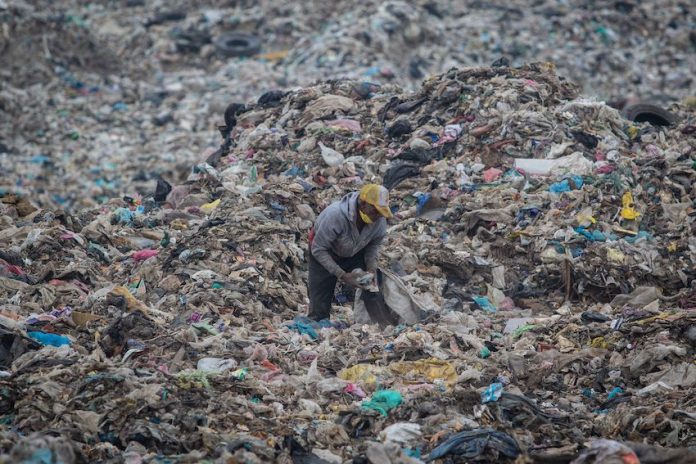Mexico City authorities have signed a commitment to reduce plastic waste as part of the United Nations Environment Program (UNEP).
Mexico City Mayor Claudia Sheinbaum signed the Global Commitment for the New Plastic Economy agreement on Tuesday. The U.N. global initiative was launched in 2018 to encourage the private sector, businesses and other organizations to unite “behind a common vision of a circular economy for plastic in which it never becomes waste or pollution,” according to UNEP.

“We are very pleased that tomorrow [Wednesday], they will announce in Paris that Mexico City is entering into this commitment,” Sheinbaum said during the signing, which took place in the Museum of Mexico City.
As part of its commitment, Mexico City’s government will promote the elimination of plastic products, encourage the adoption of reuse models, increase plastics collection rates and establish mechanisms to stimulate demand for recycled plastic.
The scheme will be a public-private partnership, with local officials working with civil society organizations.
“Manufacturers of packaged goods, retailers, hospitality and food services and packaging manufacturers will take steps to eliminate problematic or unnecessary plastic packaging; take steps to transition from single-use to reuse models; make sure that 100% of plastic packaging is reusable, recyclable or compostable; and set ambitious targets for recycled material content in all plastic packaging by 2024,” Sheinbaum explained.

Environment minister Marina Robles added that there has been a 25% reduction of solid waste in the capital sent to landfills over the last four years.
“We have achieved a 25% reduction in waste … going from 8,600 to 6,500 tons per day,” Robles said. This coupled with other initiatives, she added, has “allowed for the reduction of 621,000 tons of greenhouse gases per year.”
In March, Mexico City passed its Circular Economy Law, which aims to encourage sustainability practices in the capital by promoting recycling techniques and more efficient use of resources.
Mexico City is one of 11 municipal governments to join the commitment. In total, five Mexican cities have signed or are confirmed to join, the most of any country in the program, although 10 of 26 Brazilian states are confirmed to join, according to U.N. data.
In addition to the capital, Toluca, México state; Querétaro, Querétaro; Ensenada, Baja California; and San Miguel de Allende, Guanajuato have either already joined, or have pledged to join the scheme.
With reports from El Economista and UNEP
